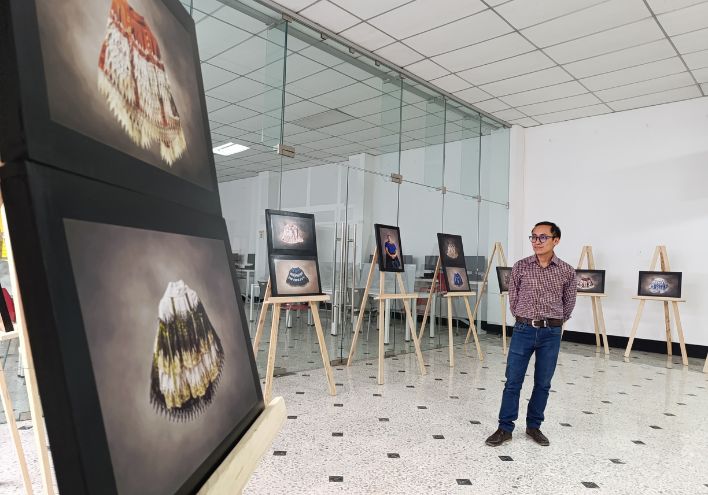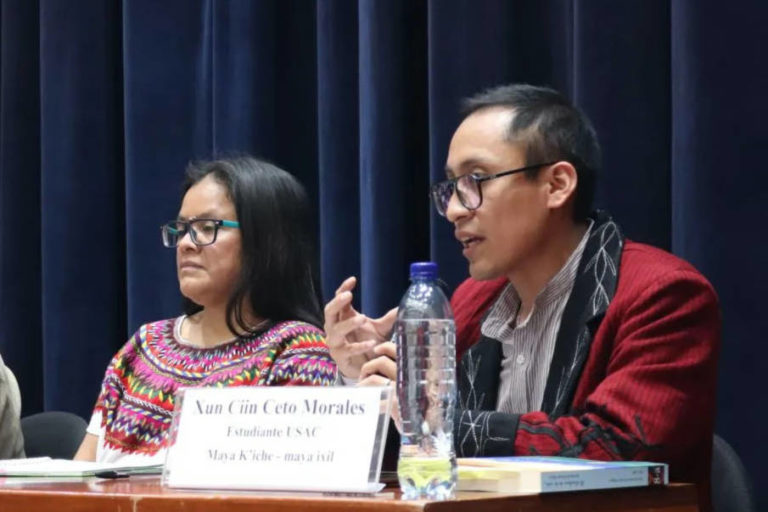Xun Ciin Ceto Morales

A Maya childhood in a world of rejection
![]() Reading time 3 minutes
Reading time 3 minutes
Xun Ciin Ceto Morales’ parents are of Maya origin: his mother is K’iche’ and his father is Ixil. His first words were in K’iche’; however, he stopped speaking this language when he started preschool to avoid being teased by his classmates who did not understand him and ended up using Spanish permanently.
“This situation is very common in Indigenous families, often because of the teasing they decide not to teach the Mayan language to their sons and daughters. This is what the process of ladinization comprises, assimilating into ladino culture, often at the cost of rejecting one’s heritage.”
While Xun avoided speaking his native languages outside the home during his childhood and adolescence, he maintained his K’iche’ through daily conversations with his mother and grandparents. Meanwhile, Xun’s father encouraged him and his sister to speak Ixil by giving them private lessons after returning from work.
A sense of pride in one’s roots was engrained in Xun’s household, as was the value of hard work. “At home, we were always taught that while studying is important, knowing how to work is also important. My mother used to say: you have to know how to use a computer or a hoe.”

Knowing our history strengthens our identity
Xun enrolled in university to study architecture but dropped out after a few years to dedicate his time to work. However, this important turn in his life led him to follow the path he is on today.
“I have no regrets because I was able to learn about different realities, other Indigenous families, and other forms of knowledge, including the wisdom of our elders, Maya women, midwives, the Indigenous mayors, and how their rights were violated.”
“I decided to change my major and began studying Sociology. I also felt motivated to take up K’iche’ language again and started wearing my Maya clothing. I realized that knowing my history and that of my people was important because it gave me three things: confidence in who I am, the strength to advocate for human rights, and lots of opportunities to embrace and share new experiences.”
The link between poverty and Indigenous life
In Guatemala, 75% of the population lives in poverty, and of this percentage, 25% lives in extreme poverty. These individuals often live in marginalized rural areas, with limited access to basic services. Most of them originate from Indigenous communities, although they may not acknowledge it.
“This is the story of the majority of the Guatemalan population, the story of my mom and dad, and in part, my own. I also see it when I have the opportunity to meet with the families involved at ATD Fourth World. Their most basic human rights, like the right to housing, education, health, water, and sanitation, as well as the right to individual and collective identity, are violated.”
“We live in a society that often associates being Indigenous with poverty, but that is not always true. Not all Indigenous people are living in poverty. Poor people are even stigmatized and labeled as lazy. These expressions are used to justify exclusion, racism, and institutional and social violence.”
“One thing for certain is that we can’t escape poverty if we have a weak cultural identity. There are two sides to the struggle. Like a bird needing both wings to fly [there is] the wing of freedom, symbolizing our fight for dignified conditions for all, and the ability to decide where and how to live, in dignity. [There is also] the wing of identity, which symbolizes the need to have high self-esteem and feel proud of our personal history, and those of our communities.”
More about ATD’s work in Guatemala
ATD Fourth World Guatemala’s facebook page

